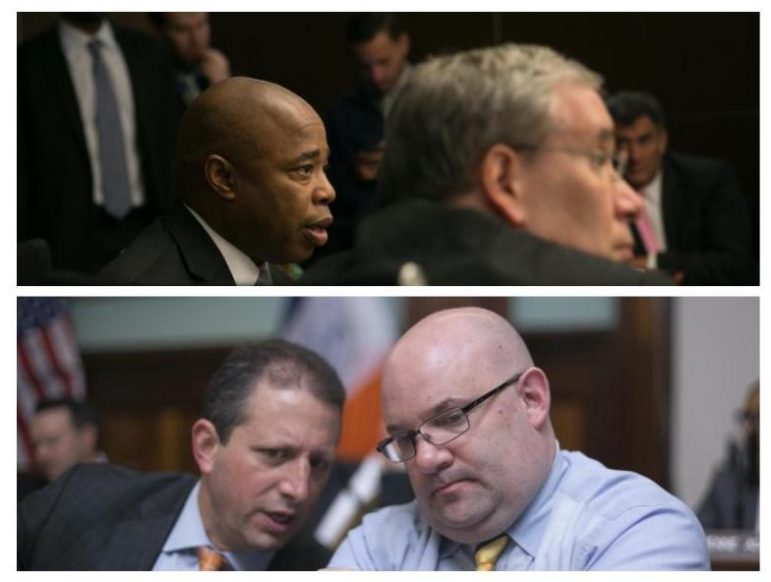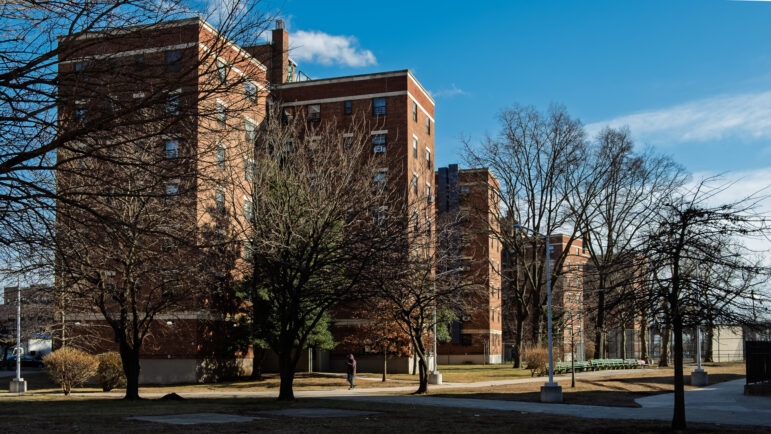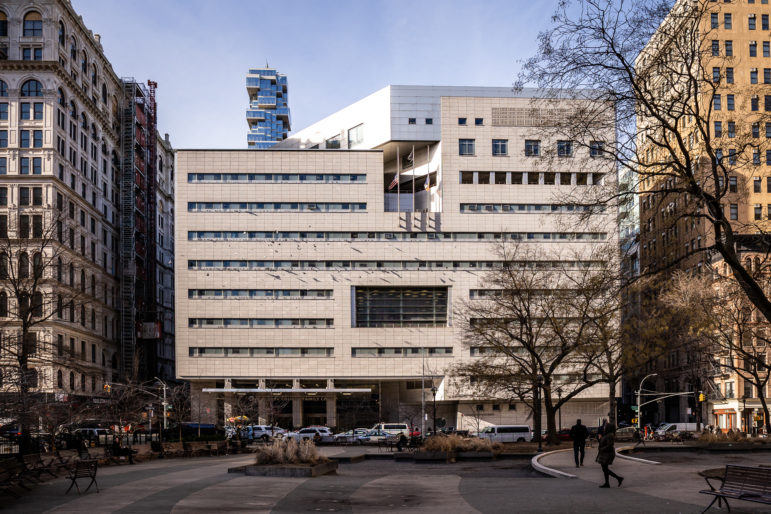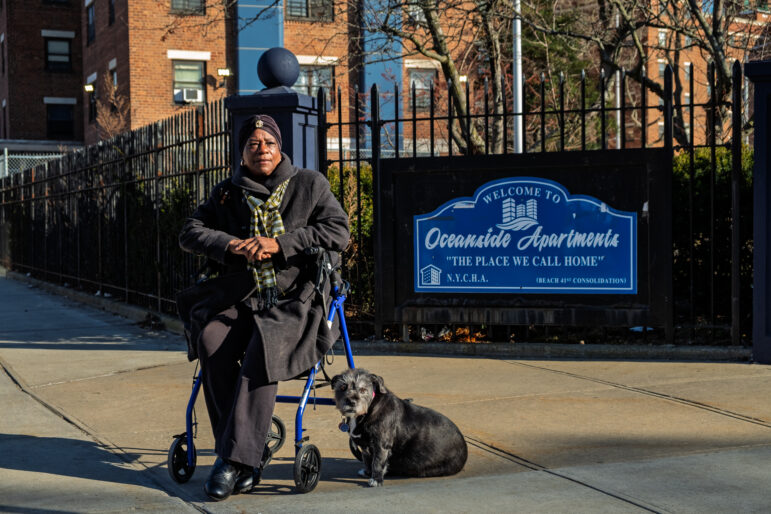Dozens of other municipal candidates also cashed in on the first round of payments from the city’s matching funds system. Candidates who accept public financing agree to abide by spending limits and, if they are seeking citywide offices, to participate in televised debates.

William Alatriste for the City Council
Top: Mayoral candidates Eric Adams, the Brooklyn borough president, and Comptroller Scott Stringer at a 2014 briefing. Bottom: Councilmembers Brad Lander, running for comptroller, and Steven Matteo, a candidate for Staten Island BP, at a 2018 hearing. All four received matching funds in the first round of payments for the 2021 race.New York City’s Campaign Finance Board on Tuesday approved the first of what is expected to be a record level of public financing for the 2021 municipal contests.
As expected, only two of the growing field of mayoral candidates will receive funding in this round Brooklyn Borough President Eric Adams will receive $4.4 million and Comptroller Scott Stringer $3.3 million.
Also receiving funds were one comptroller candidate (Councilmember Brad Lander: $2,344,442) and two borough president candidates: Councilmember Ben Kallos, running in Manhattan, will get $460,651 and Councilmember Steven Matteo, seeking the Staten Island borough presidency, will receive $382,722.
Fifty-six candidates running in the city’s 51 Council districts are also getting paid, according to announcements made at a Campaign Finance Board meeting Tuesday morning.
The $17.3 million in payments come earlier in the process than ever before, thanks to a change in city law last year. Although multiple candidates have joined the race in recent months, the payments are based on what campaigns had raised by the previous reporting deadline of July 15.
To qualify for public funds, a campaign must raise a threshold amount of money from a minimum number of donors who live in the city—and, in borough president and Council races, in that borough or district.
In this year’s mayoral race, a candidate needs to haul in $250,000 in matchable funds from at least 1,000 donors to qualify.
Once a candidate qualifies, the system matches the first $250 of donations from city residents at an $8-to-1 ratio in the races for mayor, public advocate and comptroller. The match is for the first $175 for borough president and City Council races. Candidates who accept public financing agree to abide by spending limits and, if they are seeking citywide offices, to participate in televised debates.
The maximum public payment for the June primary is $6,476,444, and a participating campaign cannot spend more than $7,286,000 on that race. Identical limits are in place for the November general election.
The spending limits can be eased or eliminated if another candidate in the race is not participating in the matching-funds system and looks likely to spend heavily. With financier Ray McGuire opting out of public funds, it is possible that the spending limits in the mayoral race will be adjusted.
Whether they take matching funds or not, candidates must obey contribution limits and document all donations and spending.
The number of Council candidates getting payments including 44 first timers, a fact that CFB Executive Director Amy Loprest said was “a sign that the 8-to-1 match is drawing new candidates.”
Fourteen of the Council campaigns receiving funds in this round are getting the maximum amount they can in the primary election.
Adams and Stringer have plenty of company in the Democratic primary for mayor: Shaun Donovan, Kathryn Garcia, Zach Iscol, Carlos Menchaca, Dianne Morales, Loree Sutton, Maya Wiley and Isaac Wright—just to name the candidates who have confirmed they are running and earned some press. The combination of a payment six months before the primary—in 2017, the first checks didn’t go out until about five weeks before Primary Day—and the need to base the payments on the state of the race in July means that public financing will, at least temporarily, create a more unequal playing field. The next chance for candidates to get payouts will be in February, based on their fundraising through January 15.
The Campaign Finance Board could have established a mid-October reporting deadline so that this round of payments would be based on an updated financial picture of the campaign. There would have been complications to doing so, however: It would have added to the workload for the agency, which will already be stretched this year, and for the campaigns themselves. Since many people working on city campaigns were also involved in federal elections, a mid-autumn deadline could have been a tough lift.
Proof that complying with the city’s campaign finance law is labor intensive came later in Tuesday’s meeting, when the board turned to enforcement matters dating from the 2017 election. Independent mayoral candidate Bo Dietl appeared before the board to defend himself against seven alleged violations of the campaign finance law, including accepting a banned contribution and an over-the-limit donation, by blaming Gioacchino Viola, his campaign treasurer.
Viola pleaded guilty in October to two larceny charges relating to thefts from Dietl’s private investigations company. Under the deal, he must pay a modest restitution.
Dietl said Viola had mishandled the campaign’s accounts and was therefore responsible for the violations. The former NYPD detective also says Viola still controlled the campaign bank account, making it impossible for Dietl to investigate some of the CFB’s allegations.
Saying his private investigations business is down 40 percent this year, Dietl pleaded with the board to spare him a financial penalty. Candidates and treasurers can be held personally liable for CFB fines.
The board imposed $37,000 in penalties on Dietl’s campaign. Viola’s attorney declined to comment.









